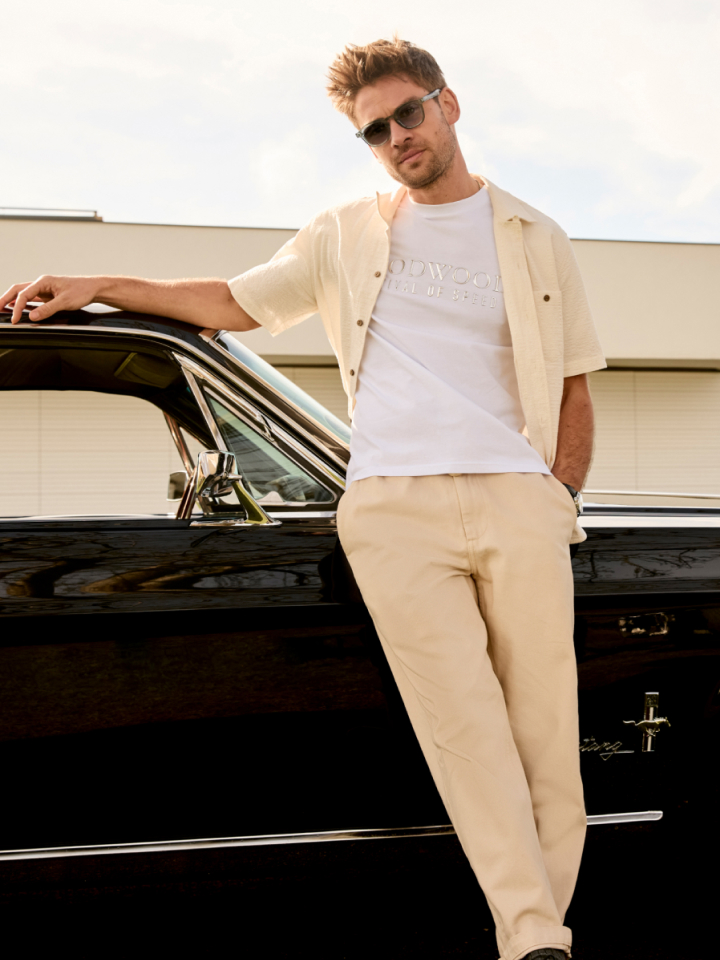Driving Moby Dick | Thank Frankel it's Friday
 Andrew Frankel
Andrew Frankel
This is either not the story I intended to write, or it is and it’s just being published rather earlier than expected. And in a somewhat different form. I was to have recounted to you this time next week what it was like to do a demonstration at the Members’ Meeting presented by Audrain Motorsport in the most powerful 911-based, factory-built Porsche of all. You may know it better by its ‘Moby Dick’ soubriquet.

I was to have spent yesterday (Thursday) filming the monster 935/78 with bodywork recalling the cetacean in Herman Melville’s novel, then driven it hard and fast over the weekend. To say I was looking forward to it is to understate the frankly bleeding obvious.
But I reckoned without Enzo, the villain of this particular piece. This Enzo is not the autocratic founder of a famous car company, but a young and strong Labrador who took off after another similarly specified canine while my hand remained around his collar. Result? One badly broken finger, a couple of hours out cold on a surgeon’s table and being off games for the duration.
The only consolation is that – lucky chap that I am – I’ve driven one before, albeit only for about a minute, or however long it took me to guide this 835bhp monster up the Goodwood Hill at the Festival of Speed presented by Mastercard about ten years ago.
All these years later and I’ve still not sat in anything more intimidating, at least in the realm of race cars loosely based on road-going product. True, by the time the team was finished with it there wasn’t much 911 left in Moby Dick – only its central structure and engine block as the rules required – but derived from the 911 it undoubtedly was.

There was, of course, that extraordinary bodywork that most readily captured the eye, but the biggest change was probably to its engine, which retained an air-cooled block, but gained water-cooled, twin overhead camshaft, four-valve per cylinder heads. This was the basic engine configuration that would go on to make the 956 and 962 prototypes the most successful sports racing cars of all time.
As the bodywork suggests, the car was only designed for Le Mans, but as a little amuse-bouche, the team entered the Silverstone Six Hours with Jacky Ickx and Jochen Mass doing the driving. If I tell you it not only claimed pole, fastest lap and won the race, but was seven laps clear of the second-placed 935 at the end and 16 laps clear of the rest of the field, you have some idea of the potential it contained.
At Le Mans it outqualified the Renault-Alpine prototype that would win the race, and the two Porsche 936 prototypes that came second and third – this with a machine based on a road car. But although it finished the race, it was held back to seventh position at the flag, partly thanks to minor mechanical issues but mainly because it had to stop, wait for it, almost 40 times for fuel. On the straight, it was timed at 227mph, and that year nothing went faster.
What do I remember of my one drive up the hill? Mainly being very scared. A heavy but progressive clutch. Wondering how you get four gears to cover a speed range from 0-227mph. A rubbish start, dribbling off the line. Then titanic shove, yelping slicks, a slow gearchange, and more insane thrust. Most particularly I remember it taking about half a second for the car to stop accelerating after I’d taken my foot off the throttle. And the twitch at Molecomb.

That was enough, enough to tell me that on this day, on this course and in this car there was nothing to gain by pushing any harder and an unimaginable amount to lose. So I toddled up to the top, only giving it full beans when the car was clearly straight after the last turn. And I’m sure it still crossed the line as fast as any car I’ve driven up the hill.
And that was it. There wasn’t really time to enjoy the experience, just enough to make me think how wonderful it would be to extend it properly on a real race track where there’s a bit of space to breathe and some room to really let it loose. What speed would it pull on the back straight approaching Madgwick? I really don’t know but would not be surprised to learn it was in the region of 170mph. All I do know is that whatever it does, it won’t be with me on board.
Then again, how sorry should I be feeling for myself right now? Not sorry at all in my estimation. The truth is that every amazing car I’ve driven has belonged to someone else, so being behind their wheels has never been a right, but a blessing. And on those occasions when it doesn’t quite come off, you can only be grateful for that far larger number of times when it did.
While driving Moby Dick for a minute is not ideal, it’s a sight better than not having driven it at all. At least that’s what I’ll be telling myself all weekend every time I see some other lucky blighter at the wheel.
Photography by Adam Beresford, Sephanie O'Callaghan and Jochen Van Cauwenberg
Thank Frankel it's Friday
Porsche
935
Moby Dick































































